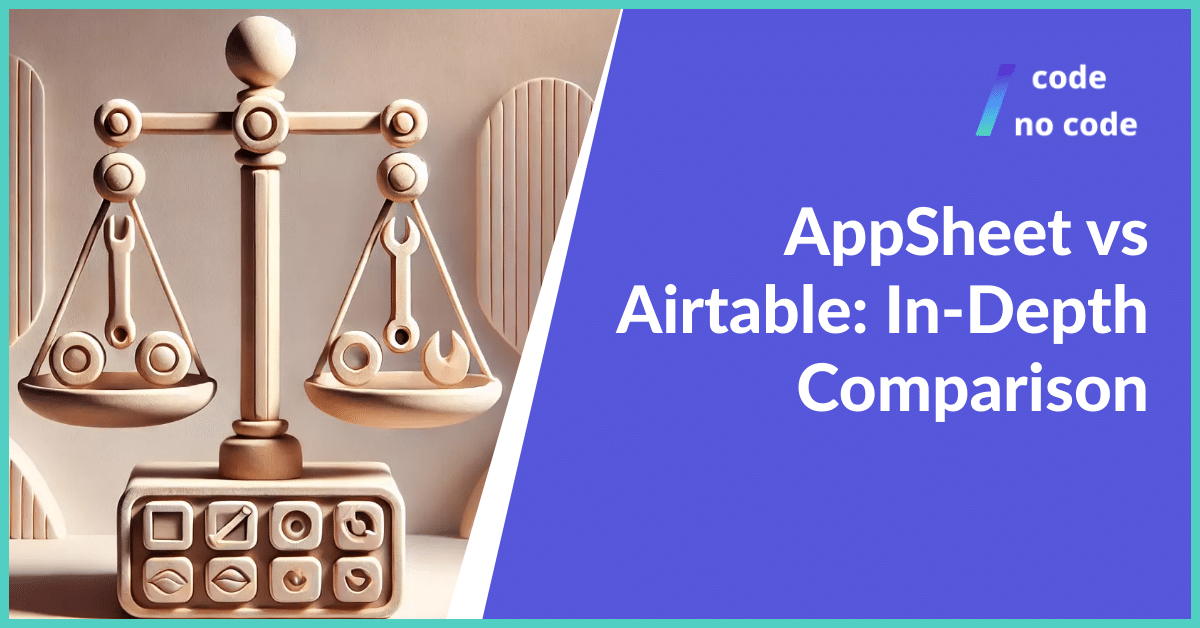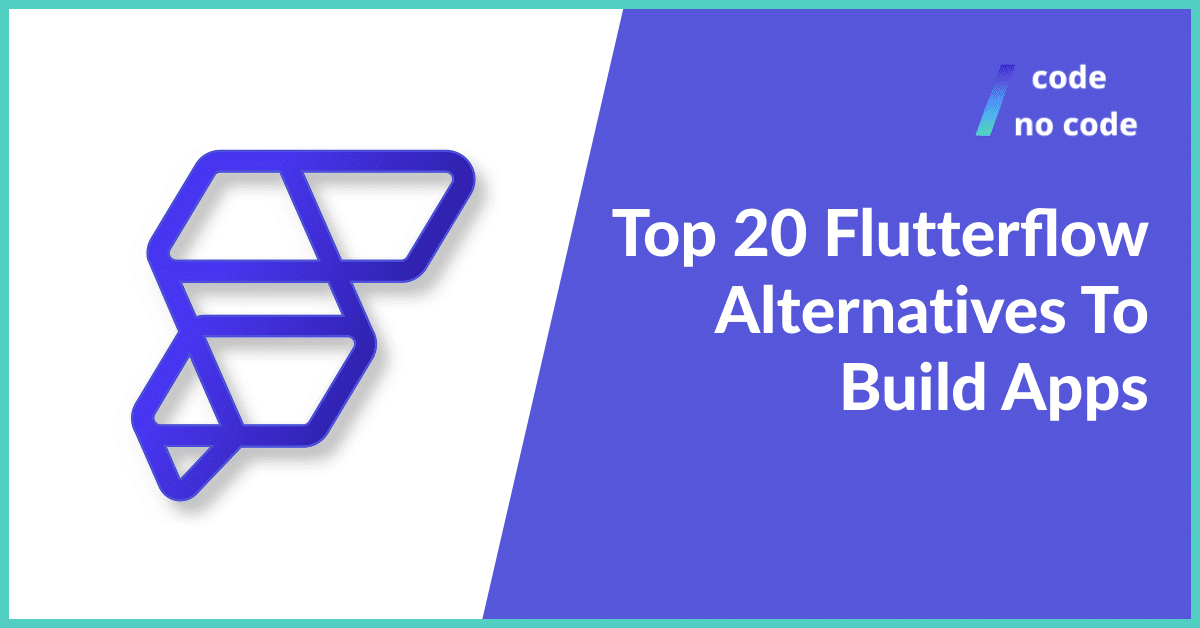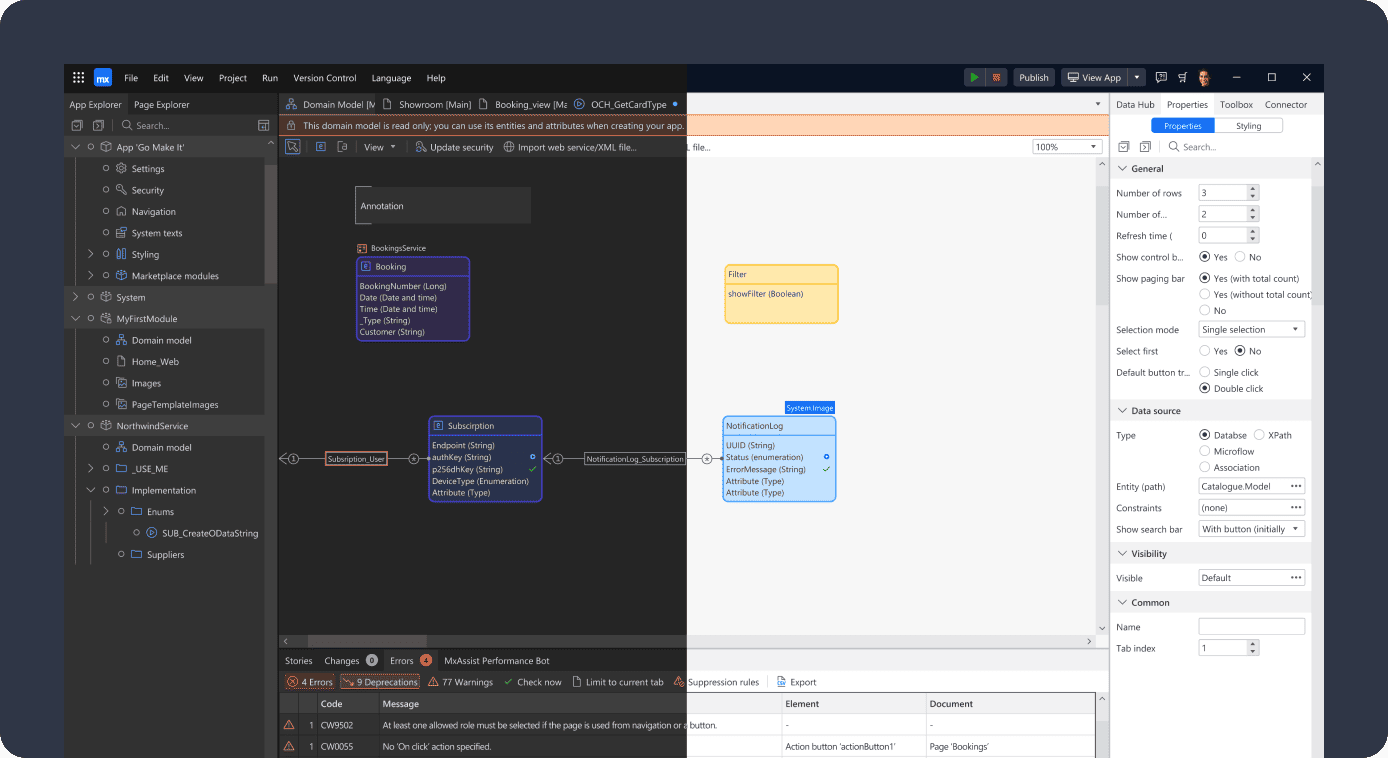
AppSheet vs Airtable: In-Depth Comparison
If you’re deciding between AppSheet and Airtable, knowing their differences is important. Both tools are designed to build apps and manage data without coding. This guide will...
Flutterflow is popular, but it’s not your only option. In this guide, we will cover 20 other tools you can use to build apps, each with its own features. If you’re looking for alternatives, this list will help you choose.

FlutterFlow is a low-code development platform that allows you to create cross-platform mobile and web applications without writing extensive code. It’s designed to make app development more accessible to a wider range of users, including designers, entrepreneurs, and developers.
FlutterFlow is a popular no-code platform for building apps. However, there are many other tools available. Here are the top 20 FlutterFlow alternatives, ranked based on key features, ease of use, and best use cases. All of these tools will either be no-code or low-code with some AI capabilities as well.
Bubble is a no-code platform for building apps without writing code. It offers a drag-and-drop editor, making UI design simple. Users can define app behavior using natural language, with no coding needed.
Key Features:
Adalo is a no-code platform that lets you build apps for mobile and web. It’s designed for users with no coding skills, allowing them to create fully custom applications using drag-and-drop tools.
Key Features:
Noodl is a free, open-source, AI-powered low-code platform for building custom apps. It allows users to create full-stack applications quickly without writing code. Noodl’s visual development environment supports both front-end and back-end development.
Key Features:
Thunkable is a no-code platform for building custom mobile apps. It enables users to create powerful apps with no coding skills required.
Key Features:
Webflow is a visual web development platform for creating custom websites without code. It allows marketers, designers, and developers to build, optimize, and scale websites with ease.
Key Features:
Backendless is a low-code platform for building and scaling apps quickly. It offers a complete toolset, covering both frontend and backend development without the need for coding.
Key Features:
Appy Pie is a no-code platform that lets users build apps, websites, chatbots, and more without coding. It’s designed for businesses of all sizes, offering easy-to-use tools for digital creation.
Key Features:
Glide is a no-code platform that helps businesses create custom apps without coding. It enables teams to build modern tools for faster, more efficient workflows.
Key Features:
Zoho Creator is a low-code platform that lets users design, build, and run custom applications with minimal coding. It simplifies app development for businesses of all sizes.
Key Features:
Bravo Studio is a no-code platform that transforms Figma designs into native mobile apps. It offers full design control and backend integration for a seamless development experience.
Key Features:
Canonic is a no-code platform that lets you build and deploy full-stack applications with ease. Start in minutes and master the platform in hours, reducing complexity while offering powerful integrations.
Key Features:
OutSystems is a low-code platform designed for building business-critical software quickly and efficiently. It empowers companies to create custom apps without needing deep coding expertise.
Key Features:

Mendix is a low-code platform designed to accelerate enterprise app development with AI-enhanced capabilities. It simplifies building complex, business-critical applications.
Key Features:
Softr is a no-code platform that allows businesses to quickly build custom apps from their data without coding. It transforms spreadsheets and databases into client portals, internal tools, and more.
Key Features:
SAP Build Apps is a low-code development platform that allows users to quickly create enterprise-grade applications without coding. Designed for all skill levels, it simplifies app development with drag-and-drop tools.
Key Features:
Caspio is a low-code platform that enables businesses to create custom cloud applications quickly without coding. It supports multi-user apps, workflows, and dashboards, making app development accessible to non-developers.
Key Features:
Betty Blocks is a low-code platform that allows businesses to build custom applications using a drag-and-drop interface, without writing code. It’s designed for both non-developers and IT teams to collaborate effectively.
Key Features:
AppInstitute is a no-code app builder that allows businesses to create mobile apps quickly without coding. With an intuitive drag-and-drop interface, it’s designed for anyone to build custom apps in minutes.
Key Features:
GoodBarber is a no-code app builder that allows businesses to create stunning, high-performance mobile apps for iOS and Android without coding. With an intuitive drag-and-drop interface, anyone can build and launch native apps quickly.
Key Features:
Draftbit is a no-code platform for building native mobile apps, responsive web apps, and internal tools. With a drag-and-drop interface, users can design, build, test, and publish apps without coding. You retain full control of the source code, ensuring flexibility.
Key Features:
Choosing the right platform depends on your app type, business needs, and technical expertise. Here’s a simple guide to help you make the right choice.
Start by identifying who will use your app. Internal business apps often need more workflow automation and database support. Customer-facing apps, on the other hand, require better user experience and design flexibility. For internal tools, choose a low-code platform that prioritizes integrations with business systems.
Determine whether you need mobile apps, web apps, or both. If your users need mobile access, platforms like Adalo and Thunkable are great for building apps without coding. If your app will be web-based, consider Webflow or Bubble for a no-code web app solution.
Scalability is key for future growth. If you expect to handle more users or data in the future, choose a platform that can scale. Platforms like OutSystems or Backendless are good options for businesses with long-term plans. They offer support for larger apps and enterprise-level features.
Check if the platform has a strong support community. Look for active forums, tutorials, and customer support options. This is especially important for platforms like AppGyver and Glide, where users can get stuck without coding knowledge. Having access to a community can help solve problems faster.

If you need to build native mobile apps, Adalo, Thunkable, and Bravo Studio are good options. They allow you to create Android and iOS apps without coding. For more complex mobile apps, platforms like Backendless offer more features and scalability.
Most no-code and low-code platforms don’t require coding knowledge. They use drag-and-drop interfaces that make it easy to build apps. However, some low-code platforms, like AppGyver and OutSystems, offer advanced features that may require basic coding knowledge for more customization.
Look for features like database management, API integration, and automation tools. For customer-facing apps, focus on user experience and design flexibility. Scalability, security, and active community support are also important, especially for business apps.
FlutterFlow is a popular choice for building apps, but it’s not your only option. This guide provides 20 alternatives that can fit various needs and preferences. Each platform offers distinct features, and some are better suited for specific tasks. Whether you need full customization or simple drag-and-drop tools, there’s a solution here for you.

Whether you’re a business owner, designer, or developer, it’s important to explore different tools. While FlutterFlow is great for certain projects, alternatives may offer features that better suit your goals. Take the time to review your options carefully and choose a platform that aligns with your needs.
Of course, if you are not the biggest fan of creating apps yourself consider an agency that specializes in no-code and low-code app development Idea Link.